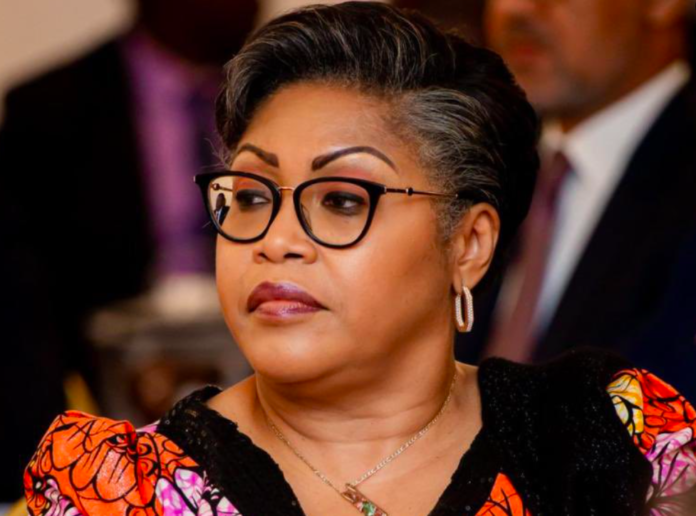On April 1, in a landmark decision, President Félix Tshisekedi of the Democratic Republic of Congo (DRC) appointed Mrs. Judith Tuluka Suminwa as the new Prime Minister, marking a significant moment in the nation’s political landscape. This announcement was made official through the President’s X account, heralding a new chapter in the governance of the DRC.
Mrs. Tuluka, who previously served as the Minister of State, Minister of Planning, has stepped into a role no woman has ever held since the country gained independence. Her appointment not only breaks a glass ceiling but also underscores President Tshisekedi’s commitment to promoting gender equality and “positive masculinity” in leadership positions.
The transition comes after Jean-Michel Sama Lukonde’s tenure, which lasted two years and eleven months. The change in leadership was announced three months following the legislative elections, signaling a fresh direction under Mrs. Tuluka’s guidance. With an illustrious career beginning in the banking sector and at the United Nations Development Programme (UNDP), before venturing into the executive branch of government, Mrs. Tuluka brings a wealth of experience to her new role.
Her journey in politics commenced in the Ministry of Budget and later as the Deputy Coordinator of the Presidential Strategic Oversight Council (CPVS), directly affiliating her with the Presidency. A close associate of President Tshisekedi and a key contributor to his speeches, her influence within the administration is well recognized. A member of the Union for Democracy and Social Progress (UDPS), Mrs. Tuluka maintains strong connections with the presidential family, highlighting her integral role in the current government.
Emerging from a pool of three finalists, Mrs. Tuluka’s selection as Prime Minister is a testament to her capabilities and dedication. Educated in economics in Brussels, she has seamlessly transitioned from a technocratic background to a pivotal political figure. Her leadership is expected to navigate the complex political terrain of the DRC, especially in addressing the economic and security challenges that loom large over the nation’s future.
The formation of her government, which integrates key political entities such as the Union for the Congolese Nation (UNC) of Vital Kamerhe, the Alliance for the Democratic Forces of Congo (AFDC) of Modeste Bahati, and the Movement for the Liberation of Congo (MLC) of Jean-Pierre Bemba, signifies a collaborative approach towards governance.
Facing her term, Mrs. Tuluka’s priorities are clear: addressing the DRC’s substantial economic and security challenges. In an environment fraught with political complexities, her ability to steer the nation towards stability and growth will be closely watched. Moreover, in the broader context of regional politics, her leadership will also be pivotal in navigating the intricate relations with neighboring countries, including Rwanda. The critical stance towards the Rwandan government under President Paul Kagame, especially concerning security and regional stability, remains a sensitive and essential aspect of her diplomatic agenda.
In her own words, acknowledging the magnitude of her responsibilities, Mrs. Tuluka stated, “I am aware of the enormity of the task and the immense challenges ahead. But with the support of the President of the Republic and everyone’s collaboration, we will succeed.”





























































